Non-Healing Ulcers or Wounds
Non-Healing Wounds and Ulcers
Certain types of ulcers, known as non-healing ulcers or non-healing wounds, can pose serious health risks, potentially leading to limb amputation or, in extreme cases, loss of life. At Pedes Orange County, we specialize in treating non-healing ulcers associated with peripheral arterial disease (PAD) and other arterial conditions.
Non-healing wounds or ulcers that do not heal beyond three weeks or follow the usual healing process are referred to as chronic wounds. These wounds can be a significant burden, but our board-certified vascular specialists are dedicated to providing effective ulcer treatment plans to help patients resume a healthy, productive, and pain-free life.
Types of Non-Healing Ulcers
Patients generally experience one of three types of non-healing ulcers, categorized by their causes.
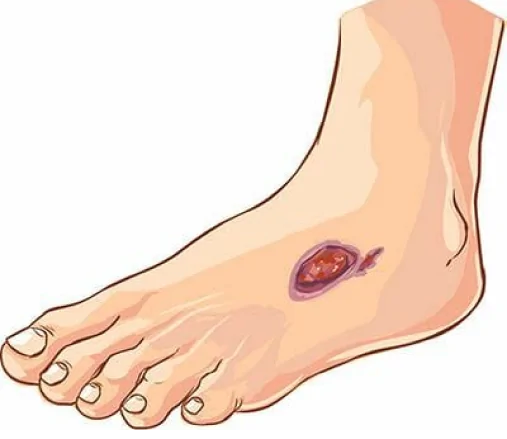
Symptoms of Non-Healing Ulcers
Darkening or bluish discoloration around the wound edges
Significant pain around the wound that persists without improvement or progressively grows worse
Foul odor or smell emanating from the wound
Swelling and redness emanating from the wound and spreading to surrounding skin and tissue
Continuous leaking, draining, or weeping from the wound
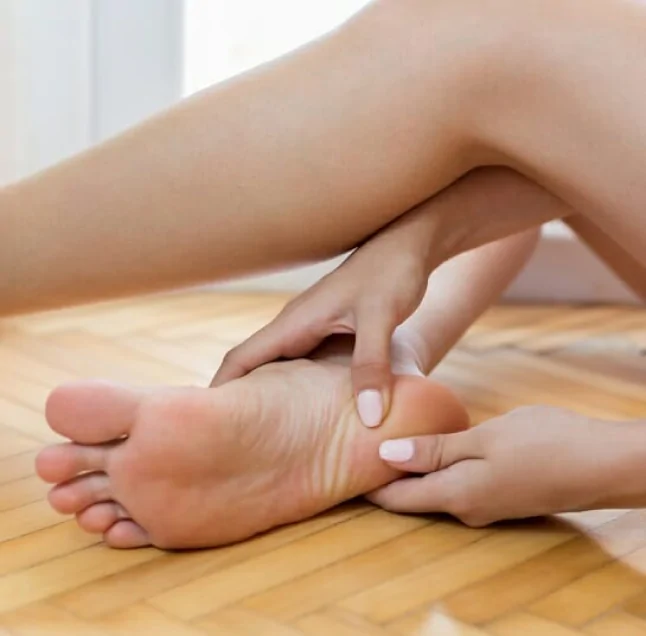
Causes of Non-Healing Wounds
Various factors contribute to the risk of developing a non-healing ulcer or wound. What these factors have in common is their ability to interfere with the way the body normally functions in healing wounds.
Nerve damage, or neuropathy, can significantly hinder sensation and blood flow, leading to the development of non-healing wounds. This condition requires careful management and specialized treatment to prevent complications and promote healing.
A person’s circulatory system is responsible for delivering oxygen- and nutrient-rich blood to all the tissues in the body that need it. Without it, tissues will begin to die. Peripheral artery disease (PAD) is a common condition associated with non-healing ulcers, as it may lead to numbness, skin discoloration, or severe pain if left unchecked.
The formation of non-healing ulcers may indicate a patient has reached the advanced stages of an underlying health condition. These conditions include high blood pressure, diabetes, kidney failure, high cholesterol, or peripheral artery disease (PAD). These conditions contribute to the formation of ulcers by interrupting the flow of oxygenated blood to all parts of the body or by causing nerve damage.
Some habits and lifestyles will place patients at a heightened risk of developing non-healing ulcers. Smoking, for instance, narrows the vessels carrying blood to body tissues, thus increasing one’s chances of developing ulcers. A sedentary lifestyle may also carry the risk of encouraging non-healing wounds to develop.
Non-Healing Wound Treatment
Because various causes contribute to the development of non-healing wounds, a wide range of wound care is available to help patients heal properly. Our vascular doctors will discuss the options with you to determine the best possible treatment plan for your specific condition. Common courses of treatment include:
- Compression wrapping
- Specialized dressings
- Topical medication
- Patient education
Additional specialized treatments for non-healing ulcers include:
For individuals with non-healing wounds or ulcers, the key to recovery often lies in improving blood circulation. When blood flow is restricted due to peripheral arterial disease (PAD), wounds struggle to heal properly, increasing the risk of complications.
At Pedes Orange County, we specialize in advanced vascular treatments designed to restore blood flow and promote healing. Using minimally invasive techniques, such as angiograms with intervention, we can identify and treat arterial blockages, allowing oxygen-rich blood to reach the affected area more effectively. By addressing the underlying cause of poor circulation, we help patients experience faster healing, reduced discomfort, and improved overall vascular health.
Skin grafts taken from donors, also referred to as allografts, are another option. These grafts provide a covering to the wound and work by encouraging and providing a structure for the growth of epithelial cells.
Debridement refers to the removal of dead or dying (necrotic) tissue from the site of a non-healing wound. The goal is to minimize the risk or opportunity for infection by eliminating the necessary medium for bacterial growth. Debridement is most commonly used to fight against diabetic non-healing ulcers, as amputation will usually be carried out in cases where the infection has progressed past a certain limit.
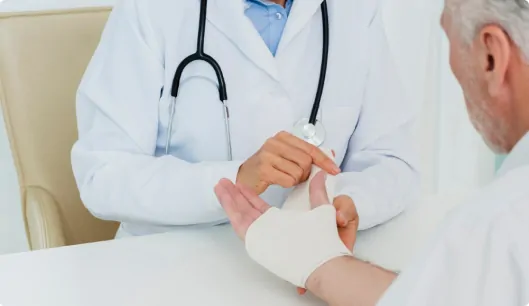
Advanced Wound Care for Non-Healing Ulcers in Irvine, CA
The skilled doctors at Pedes Orange County in Irvine, CA, specialize in advanced treatments for non-healing wounds and ulcers, providing expert care for patients with peripheral arterial disease (PAD). If you have an open ulcer, we offer same-day or next-available appointments within 48 hours to ensure you receive timely care. Our treatment process is expedited to promote faster healing and help you regain comfort and mobility as soon as possible.
Call (949) 997-2418 today to schedule an appointment, or contact our friendly staff online at your convenience. We look forward to helping you heal and improve your quality of life.
Contact Us Today
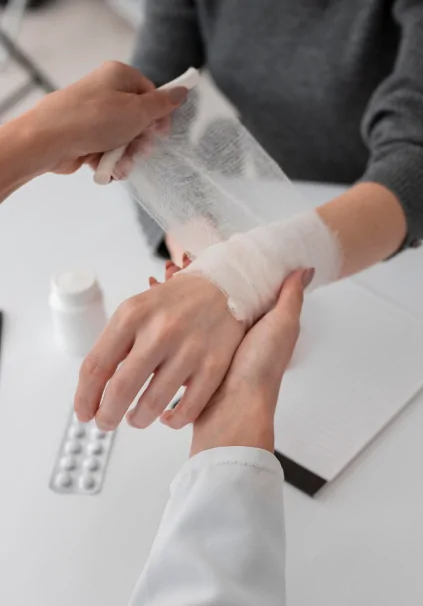
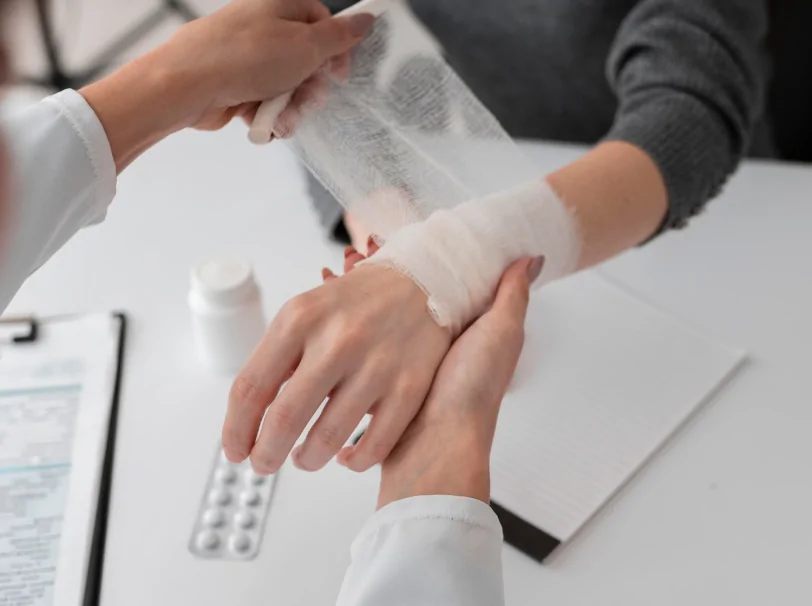
Our Vascular Disease Physicians
The physicians at Pedes Orange County devote their lives to saving limbs and minimizing pain. Our conveniently located, state-of-the-art facility is designed for your comfort and utilizes cutting-edge technology to provide minimally invasive treatments. Our vascular specialists are board-certified and some of the best in Southern California. Personable staff members make every visit a positive experience, with short wait times and an efficient, streamlined process that ensures you leave feeling educated and confident that you are in good hands.
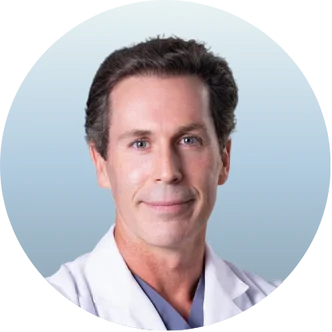
J. Joseph Hewett, M.D.
Vascular Specialist
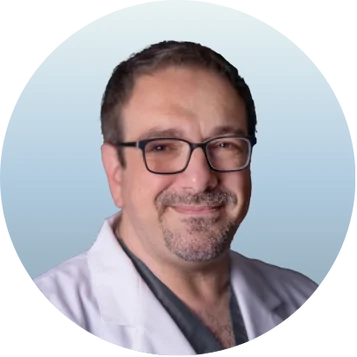
Neil K. Goldstein, M.D.
Vascular Specialist
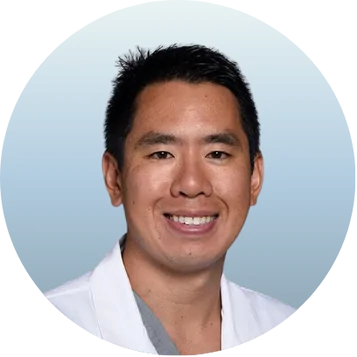
Derrick Tran, MD
Vascular Specialist
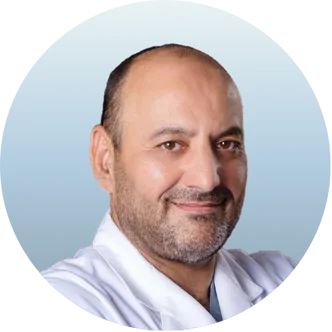
Mohammad Jaber, M.D.
Vascular Specialist
What to Expect from Your Visit to Pedes
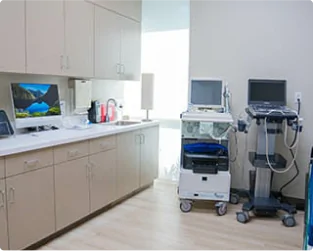
Ultrasound
Advanced ultrasound-guided examination techniques will be used to visualize the veins, arteries, or both, in your legs. This is often used in the diagnostic process to detect the presence and extent of disease.
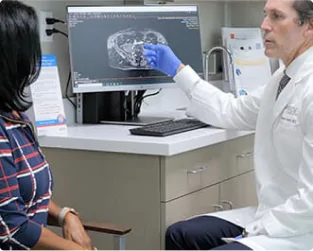
Consult
Once we review the results of your diagnostic tests, our physicians will collaborate with you to develop a personalized treatment plan, ensuring the best course of treatment for your specific condition.
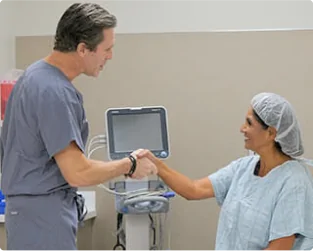
Treatment
Your treatment plan will be personalized to you and your individual needs. At Pedes, we specialize in minimally invasive procedures and nonsurgical treatments, all of which are performed by our dedicated vascular physicians within the comfort of our state-of-the-art facility.

Follow up
We ensure our patients receive continuous care and support with regular follow-up visits. Each follow-up visit is scheduled at the time of your in-office appointment. Should you have a concern between
appointments, we encourage you to call our office and get scheduled at any time.



